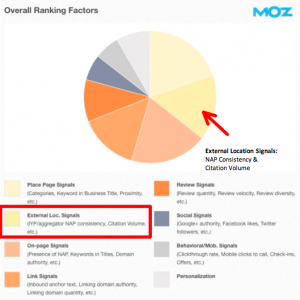Information travels quickly in today’s highly-connected global economy. In addition to providing companies with unparalleled flexibility, this interconnected environment also has the potential to create tremendous disruption and uncertainty. The ability to analyze situations quickly and respond appropriately has become the new business differentiator for many companies.
The US Army War College used the term VUCA to describe the political dynamics of the post-Cold War world, but it has been widely adopted by the business community to characterize the 21st century economy. Today’s global markets are volatile, uncertain, complex, and ambiguous, which has forced organizations to rethink how they develop leaders capable of delivering positive business outcomes in the VUCA era.
VUCA Leadership Skills
Agile Leadership
Given that organizations face so many situations where outcomes are difficult to predict, it should come as no surprise that many of them are emphasizing agile leadership skills in their leadership development programs. Agile leaders have the ability to react quickly to changing events and avoid becoming bogged down. They start by building strong relationships with their teams to help them adapt when priorities shift or unexpected obstacles emerge. A strong basis in systems thinking allows them to see the big picture, which is incredibly valuable when attempting to address an organization’s short-term needs without compromising its long-term goals. With their diverse skill set and ability to solve problems creatively, agile leaders understand how to thrive in a VUCA world.
Resilience
Setbacks, failures, and disappointments are inevitable consequences of living and leading in a VUCA world. Leaders may struggle to adapt to new situations or find that their tried and true best practices might no longer reliably produce results. By focusing on building leadership resilience, organizations can prepare leaders for how to handle those moments when they’re forced to confront them. They can start by making sure leaders learn valuable lessons from their mistakes and provide them with the support they need to persevere in the face of difficulties. Resilient leaders are better able to remain calm in the face of challenges, which allows them to keep their teams focused on outcomes and bounce back quickly when they encounter problems.
Scenario Analysis
The ability to think strategically is a vital component of VUCA world training. Successful leaders need to be able to evaluate situations, account for a wide array of variables that could create complications, and then make the best decision possible. They will often be forced to make decisions with imperfect information, which is a huge factor when assessing the risks inherent in any decision. By teaching leaders how to conduct scenario analysis and planning, organizations can prepare them for the challenges they will face in the future. Scenario analysis forces leaders to articulate a vision for the organization, develop VUCA world strategies that account for a variety of outcomes, and lays out a path for implementation and stakeholder buy-in. It also teaches leaders how to accurately assess risk from a holistic standpoint, identifying how different events or situations can have a broad impact across the organization as a whole.
Critical Thinking
Today’s organizations have access to more data than ever before, but data alone doesn’t automatically lead to better decisions. Without a strong process-oriented approach to analyzing information and making decisions, leaders can still find themselves influenced by their biases and emotions. Critical thinking skill development helps them to identify and set aside their preconceived notions, which opens them up to different ways of thinking and allows them to consider new possibilities. Successful leaders have learned to manage information effectively, discerning facts from opinions and screening out irrelevant data points. They are also highly reflective, which allows them to continually refine and improve their decision-making process.
By focusing on these key areas, organizations can develop leaders with the skills and expertise necessary to confront the challenges of a VUCA world. They must be far more proactive when it comes to identifying high-potential leaders early in their careers. This will allow companies to provide potential leaders with the opportunity to build the competencies they will need to be successful in the future. Engaging with these employees early and emphasizing VUCA world leadership development will also make it more likely that they remain with the organization instead of seeking opportunities elsewhere. Building a strong succession pipeline full of potential leaders is one of the best ways companies can prepare for all that the VUCA world can throw at them.
Business & Finance Articles on Business 2 Community
(15)







